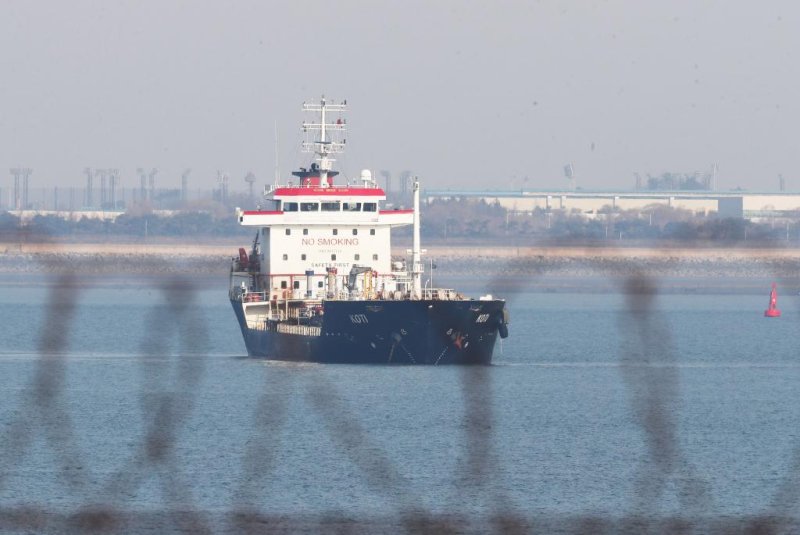The Panamanian-flagged KOTI, currently detained near Pyeongtaek, South Korea, is suspected to have supplied oil to North Korean ships at sea. Photo by Yonhap
Jan. 2 (UPI) -- Two ships South Korean authorities detained after they were suspected of transferring fuel supplies to North Korean vessels at sea are of Chinese origin.
According to data from the Port State Control Committee of the Asia Pacific, different Chinese firms, each with a mainland headquarters, own the Hong Kong-flagged vessel Lighthouse Winmore and Panama-flagged KOTI, Voice of America reported Tuesday.
Lighthouse Ship Management is the name of the Chinese firm that maintains the Hong Kong-flagged ship, and is headquartered in the Panyu District of Guangzhou.
Dalian Grand Ocean Shipping Management is a firm headquartered in the northeastern Chinese city of Dalian, Liaoning Province, that owns the KOTI, according to the report.
Dalian Grand operates three vessels under the flag of Panama, and another two ships under the Hong Kong flag.
The vessels may have been operating under non-Chinese flags in order to circumvent North Korea sanctions, South Korean newspaper Kookmin Ilbo reported.
A dispute is ongoing between Chinese state tabloid Global Times and the Taiwanese government following the seizure of the Lighthouse Winmore, after the newspaper charged Taiwanese firms of breaking the law.
Taiwanese group Billions Bunker operates the ship found in violation of sanctions, but Taipei said it is not responsible and claimed the firm is registered in the Marshall Islands.
Sanctions violations may have occurred in the Chinese seafood sector as well, the Korea Times reported Tuesday.
The city of Tumen, near both the North Korea and Russia borders, is the site of seafood vendors who obtain their North Korean supply from Russia, according to the report.
The use of a Russian trading route "doubles" the price of hairy crabs, clams and other seafood.
Some items are directly smuggled out of North Korea, sources in China told the Korea Times.
In the Chinese city of Dandong, North Korean traders have dwindled in number and the "vacancy rate of city buildings is rising," a local source said.















